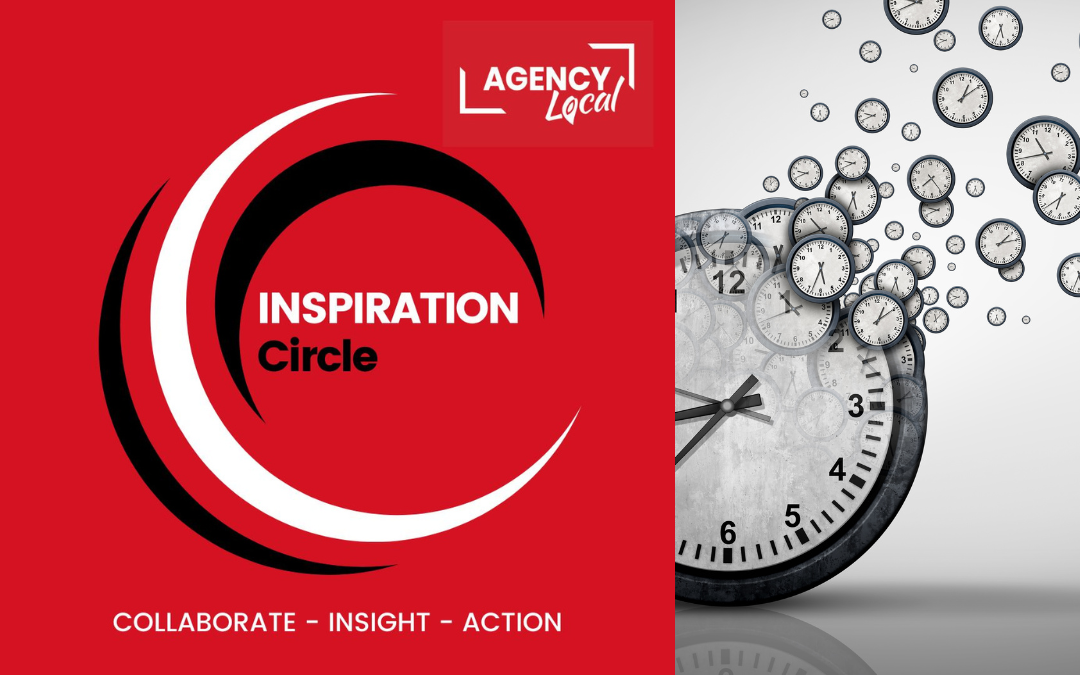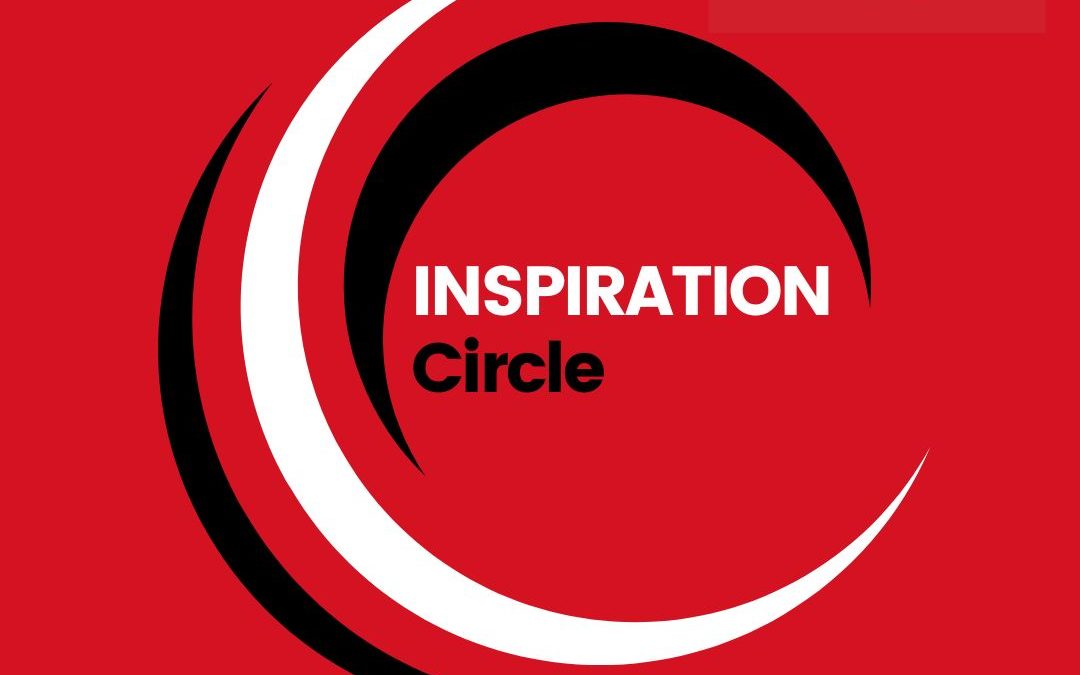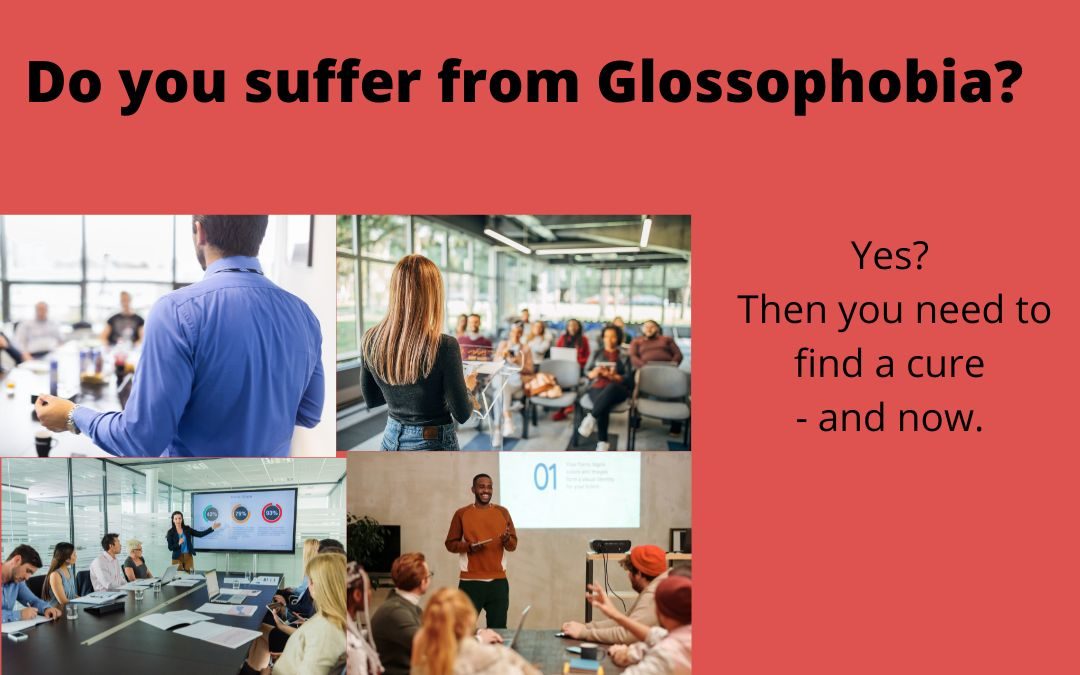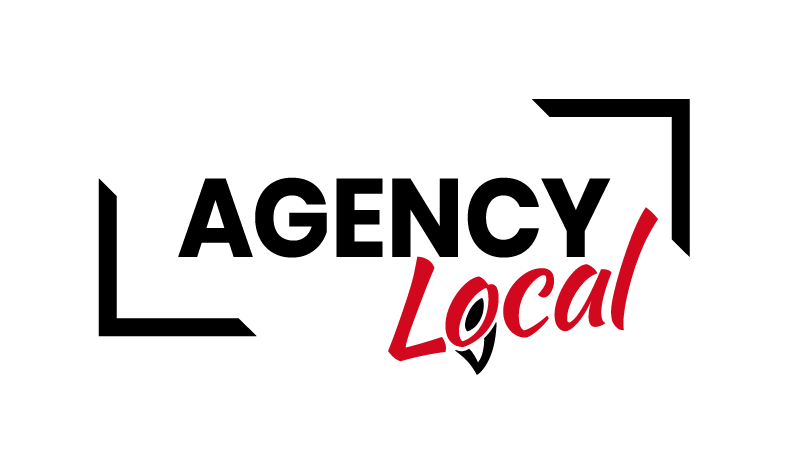
by Chris Bantock | Oct 10, 2022 | Events
Change is everywhere. It’s all around us every day.
The important thing about change is not the change itself but how we deal with it.
What do we mean by change?
We all experience change in our personal life and in our business life. There are two categories of change
- Change done to us – outside changes that impact us
- Change done by us – changes we initiate.
We have a great deal more control over the changes we initiate.
We need to react to changes done to us to maximise the opportunity or minimise the impact.
Below are examples of some changes in these categories – this is not an endless list and I am sure you can add many more to these.
|
Change done to us |
Change we initiate |
| Business |
Pandemic
Economic slump
Currency Fluctuations
Tax increase
New Legislation |
Installing a new system
New employee
Letting employees go
Strategy changes
Product development & Launch
Winning a new client |
| Personal |
Relationship breakup
Price rises
Children changing schools |
Relationship breakup
New purchases
House improvements
Fitness
Diet
What we eat |
Agency Owners – you are Change agents
The whole purpose of an agency is to provide services that will CHANGE your customers in some way. You are change agents.
So understanding change, how to implement it successfully should be a paramount skill to be able to deliver your services efficiently and effectively.
Creating a vision, managing resistance, managing people along the change journey. You many not think of it as ‘change’ however it is exactly what you are doing day in day out. Developing a new brand to change a business – building a new website to change how they communicate – copywriting to change they way the talk to their audience – these are all examples of how you as a marketing agency are implementing change.
Dealing with change
Whether it is change done to us or by us there are two important elements to consider when dealing with change. Amanda Page talks about the Emotion and commotion of change.
Firstly the outcome. How do you get the best possible outcome for you / your business and for others? Having a knowledge of change, how it works and how can effect it are vitally important.
The second is the emotional side – the impact it can have on ourselves. How we manage change emotionally has a big bearing on our mental health.
Knowledge of Change
This is why we are focusing on change at Agency Local this month. We are looking to ‘skill up’ our members to be able to manage and cope with change better. This is a wonderful skill to have as an Agency Owner, it will help you manage your business through the natural changes that happen as a result of trying to grow your business.
Having an understanding of how change works is the starting point.
Having a model to work with when managing change is really important. Amanda page has outlined the Change Cycle in her learning video.
Understanding the impact on others when change happens is vital. This allows you to effect change through others (most change is driven by other people), knowing how you can take them on the journey with you is key to success.
Amanda has also shared her 6 Trade Secrets for Change which will transform how you lead – again this is all part of the learning content available in the members portal where Amanda explains each one in a short 3 min video. They are:
#1 Future proof your people. Your vision starts now!
#2 Vision + People = Direction. Make it real!
#3 A compelling reason to change. We all love a great story!
#4 Resistance is futile. Embrace it!
#5 The brain and change. The perfect match!
#6 Ways to measure change. Strive for progress not perfection!
The book of the month in the Agency Local Bookclub has been recommended by Amanda and is called Beyond the Wall of Resistance by Rick Maurer. This will add yet another layer to your understanding.
Turning knowledge into actionable skills. The Outcome of this month’s focus on change.
The aim is to equip you with skills to manage change. The starting point is this new found knowledge – however knowledge alone will not have the desired impact. Transferring that knowledge to a new skill in your business armoury is when the impact will happen.
The Inspiration Circle is the opportunity to put this knowledge into practice.
When this is put into practise I am expecting three main outcomes:
- Increase your confidence to manage change
- Increase your resilience to change – to embrace change
- To achieve better results and better outcomes when managing change.
I would like to take this opportunity to thank Amanda Page who has worked with Agency Local to orchestrate this month’s focus. Amanda runs Change Tempo a change consultancy and she is happy to work with individuals and teams to better understand, manage and lead change.
https://www.linkedin.com/in/amanda-page-changetempo/
https://changetempo.com/
amandapage@changetempo.com

by Chris Bantock | Sep 12, 2022 | Events, News
We had a wonderful turnout for our new Inspiration Circle event last week.
This is all part of our renewed focus on ‘action based’ learning to improve agency businesses. By ‘Action based’ I mean not just coming to an event and leaving with some information but coming to an engaging session and leaving with actions designed for ongoing improvement.
The focus for this session was on time management, a thorny issue that the majority of agency owners can relate to. Our objective for this session was to work out how people could get 2-hours back a week.
Reflection
We had an initial discussion reflecting on our relationship with time Which resulted in some interesting themes especially in relation to the challenges that time puts on us.
These included:
- overwhelm
- inability to say no
- prioritisation
- knowing when to delegate
- feeling of burnout
- having time to yourself (well-being time)
- how distractions and shiny things interrupt us
- the buzz we get when we tick something off our todo list
Short Form Learning
Then we discussed what people had taken away from the bitesize learning videos that were shared before the session. These included the Time Management Matrix, the Pomodoro technique, and and and some time management tips and practical ideas.
(For any member not at the event these are still available in the Members Portal)
Take Action
The final part of the session was for everyone to share their 3 actions that they will implement in order to get some time back by being more in control of their time.
Here are selection of some the wonderful ideas:
- Schedule time to de mails in the day – and stick to it
- Prioritise tasks using the Time Management Matrix
- Turn of notifications when focusing on a task
- Do the important and urgent tasks in the morning
- Block out time in calendar for specific tasks
- Add space between tasks to refresh and recharge yourself
Everyone that attended was sent a short video of them articulating their three actions and were encouraged to Buddy up with the person but they were in the first breakout room with.
Buddying up and checking in on others is a key part of turning learning into action and action with accountability which results in a much higher chance of implementing the actions.
The Feedback
Post session attendees where invited to rate the experience of the Inspiration Circle.
100% rated it as 8 / 10 or more – with 50% respondents rating it as 10 /10.
Some comments were:
“I have to say that was one of the most enjoyable and informative sessions i have had a for a while, great to see everyone and thanks for the tips.”
”Loved this event! I’ve come away with clear and simple actions that I can actually achieve.”
“It worked very well and everyone was engaged, more of the same.”
Next month we are focusing on how to manage change especially through people. This is a fascinating topic and I am sure the Inspiration Circle will be hugely valuable. Please do join in.

by Chris Bantock | Sep 6, 2022 | Events
Agency Local is a development and learning community.
Our purpose is to help agencies to become better businesses and their owners better leaders.
This can only happen through continual development both of business knowledge and leadership skills.
You are time poor
We appreciate that most agency business owners are often short on time as they are focusing on customer demands and delivering services to clients. It seems that it is always the development that gets bumped.
We got it – it is not urgent – however it is very important.
Ways we learn
We have been looking into the ways people learn in an attempt to make the events and the learning available as impactful as possible.
People don’t typically learn a great deal when they are talked at. This is surprising as the education system is mostly lecture / class based and most business events are webinars and seminars where someone is ‘talking’.
Agency Local has typically delivered these style events.
However, the true power of information is when it is properly understood, used and applied.
Most traditional events are not action oriented and they don’t keep people’s attention. Humans average attention span is 14 minutes – so any longer than this and the event is wasted or there needs to be ways in which to reinvigorate the ‘attention’.
A new style of learning
In order to create the maximum opportunity for proper learning and to maximse time, Agency Local is making a few changes. Maximum learning comes from discussing a topic, getting other people’s viewpoints, and sharing ideas. Undertaking exercises and scenario based situations promotes much higher levels of learning.
Combine this with practical focus on ‘action’ – i.e. commitments as to what action you will be taking as a result of the discussion and vitally being held accountable to actually seeing those actions through to completion.
Short form on demand learning
It starts with bite sized learning approach. We will be providing information in the format of short videos – typically no more than 15 mins each – often much shorter.
These will be made available ‘on-demand’ so you can watch these at the time most suitable to you and your busy schedule.
Inspiration Circle events
These events are where the power happens – we will be discussing, getting involved in practical examples and practicing what has been learned. These events are a forum for discussion, sharing and challenging.
To drive further value to our members, these highly effective learning and development events will be offered as part of their membership and commitment.
Post event we will be adding in a layer of accountability – working with ‘buddies’ to ensure you get the benefit by implementing what will really help you.
Way Forward
We feel that this is the way forward. On Demand learning followed by practical application.
This month we are focusing on Time Management and then the next two months we have the following learning focuses:
Managing change effectively through people
Negotiation skills
I am really excited by this and hope you are too.

by Chris Bantock | Aug 1, 2022 | Uncategorised
As an agency owner or freelancer, presenting and presenting well is a necessary part of the job.
The fear of public speaking is the most common phobia ahead of death, spiders, or heights. The National Institute of Mental Health reports that public speaking anxiety, or glossophobia, affects about 73% of the population. The underlying fear is judgment or negative evaluation by others.*
If you are one of these people then to be successful in your job as an agency leader you really need to learn to overcome this fear.
If you feel comfortable speaking then there are ways you probably can improve.
Why is presenting so important?
Well, it is because as an agency leader you have to be able to communicate well in a variety of different situations.
Networking / Selling
The onus on sales often falls on the agency owner. Whether that be in a networking scenario where you have to communicate an elevator pitch a short amount of time (either 121 or publicly); or you are in front of a customer explaining what you can do for them, describing your services and the value that they will receive.
Presenting is all around delivering your messages in a concise, clear and understandable way.
Internal communication
If your an agency with a team (or a single person business with external suppliers) You will need to be able to communicate effectively to these audiences. This includes:
- Making sure that they understand the vision for the business;
- communicating your messages within team meetings;
- articulating in 121 discussions and reviews
Pitching
This is the one area that is the most discussed within the agency world. Pitching is part of the sales process, a vital part. It is the difference between winning business and losing business.
Being able to pitch effectively is probably the single most important presentations that you will do as an agency owner.
Formal Presentations (education)
A key way of increasing the visibility of what you do as a business often involves doing formal presentations. this this is a great way of educating your audience with what you do and the value you provide.
If you are afraid of presenting then this is a key area that you are missing out on.
How do you get over glossophobia?
There are many aspects to being able to deliver effective presentations as there are many ways to overcome the fear.
The biggest fear is brain freeze – the fear that you will completely forget what you are going say – this triggers the ‘what will people think of me’ anxiety and immediately you go into fight of flight mode.
A big party of this fear can be overcome by learning (and practicing) various presentation techniques.
- Relaxation techniques
- Breathing techniques
- Projection techniques
- Audience engagement techniques
What we say or how we say it
There are many research studies on the impact of verbal versus non verbal communication. One is upto 93% impact for non verbal communications in giving an effective presentation.
Whatever the figure the ability to impact an audience by what you don’t say cannot be underestimate and this is a key skill to be able to deliver great presentations.
Practise makes perfect – In many respects this is absolutely true in the world of presentations. This is a key way to overcome any fear you may have.
Help is at hand
Over the last few years we have had some wonderful presentations on this subject (that are available for members in the portal) from experts such as:
Sally Hindmarch at Partners With You (https://www.linkedin.com/in/sallyhindmarch/). Those at Agency Local Summer Social this year received a copy of her book in the ‘goody bag’.
And Andrea Pacini (https://www.linkedin.com/in/apacini/) from Ideas on Stage
In August 2022 we have Andrea coming back to talk to us about 3 steps to effective presentations covering:
- 3 key success factors for effective presentations
- Powerful techniques for developing a compelling message
- A simple method for high-impact presentations
Link to book here (free to Agency Local members)
Make Presenting a priority
I recommend that if you want to be a successful leader of your business then you make sure that presenting effectively is a key skill that you have in your armory. This will really help you to be successful in your business life and to take your agency to the next level.
* https://nationalsocialanxietycenter.com/2017/02/20/public-speaking-and-fear-of-brain-freezes/

by Chris Bantock | Jul 7, 2022 | Agency Business, Strategy
Sales or new business continues to be the number one challenge for marketing agencies of whatever size.
Why is this?
- There is a huge amount of competition for marketing services
- Most agencies are firmly in the ‘sea of sameness’ with their positioning
- Agency owners on the whole are not trained sales people
- Trained sales people do not always deliver the goods
- Sales is hard – really hard!
The vast majority of agencies rely on word of mouth or referrals for their lead generation. This can be a very effective strategy especially when you are a small agency or a freelancer however when you grow you need a steady stream of leads and prospects.
It is at this stage you need to develop multiple streams of lead generating activity.
The majority of agencies’ sales activity is a direct approach – following either inbound or outbound strategies to attract and find new customers. These approaches are very sensible and done correctly will deliver leads and enquiries. These strategies can be very time intensive and potentially costly.
There is another way.
Through collaboration and partnerships. Working together with other businesses allows you to leverage their activity (and them yours) for mutual benefit.
Effective partnering can bring you a steady stream of new opportunities, leads and sales. As these come from a ‘trusted’ source in the prospects mind you are already way ahead of the game, especially when compared to traditional sales methods.
If you are an SEO and social media agency then look to partner with non competitive but aligned businesses. For example web designers, web developers, brand designers. Services that your clients would be looking for. This way you can pass opportunities between you.
Difference between a collaboration and a partnership
These words are often used together however they mean very different things. In a collaboration, each operates independently and has complete control over the individual resources they bring to the table. In a partnership, however, there is more of a co-mingling of resources and a separate structure is developed to oversee or manage the engagement.
We are mainly talking about collaboration here – loose agreements to refer opportunities to each other. Often collaborations that work well together can then become more formal partnerships.
How do you establish a collaboration strategy?
Last year I worked in collaboration with 20 other experts to create a book – How to be a 6 Star Business. This was a great example of partnership – people working together to produce something that was bigger than the sum of the parts.
My chapter was entitled …. Wait for it ….. ‘How to be a 6 Star Collaborator’!
In this chapter I outlined the following basics of effective collaboration and these are the cornerstone of establishing a collaboration and partner strategy.
- Develop a Partner Mindset
It all starts with mindset. You have to be open to giving and receiving opportunities to each other. Have a mindset that is always on the look out for opportunities for others.
2. Ask the right Questions
Get curious – really understand what the other party wants and needs. This way you pass opportunities that are worthwhile.
3. Find your Community
Communities are really important. This is where you find your fellow collaborators. Choose communities where the people you want to work hang out. In agency world there are a number of Agency communities such as Agency Local where you can find your future collaborators.
4. Be clear on who you serve (and who you don’t)
When establishing collaborations then make sure that everyone understands who your target audience is (and as important, who they are not). This way you will get opportunities that match the audience you want to serve.
5. Be Vulnerable Be Open
It serves no one if you paint the rosy picture you want them to see. Be vulnerable be open – you will find that you build much stronger relationships this way.
6. Build Trust
Being open and vulnerable will contribute to building trust. Trust is based on competence and character you have to build both.
7. Agree on a common purpose
Discuss and agree where you both play, the areas you can collaborate. Strong collaborations develop when both parties have similar goals and purpose this way they both parties are motivated to work together.
Do you need a formal agreement?
I am often asked if you need formal agreements in place. My view is that collaborations work well when they are loose, informal relationships. However they can become more formal over time – however this is then heading into the partnership territory.
Relationship, relationship, relationship
For collaborations to work and continue to work it comes down to relationships. Be prepared to put some effort into building and most importantly maintaining relationships. Keep in regular contact (again this is where communities come into play). Have regular discussions – explore new opportunities etc.
Summary
As ever in life and business, success is not dependent on one thing. It is the same with your agency sales. Do not rely on one source for leads. Develop multiple streams to deliver a constant flow of leads.
I would strongly urge you to add a collaboration strategy to your sales mix as this will reap you untold rewards and could possibly be your most effective way to generate new business.
If you would like to discuss this or other business topics then please get in touch.





